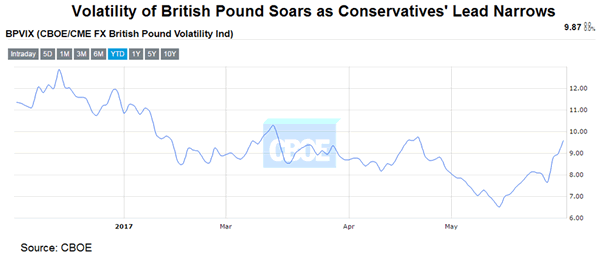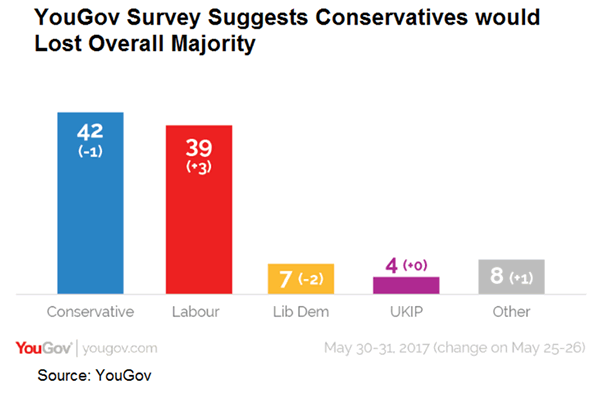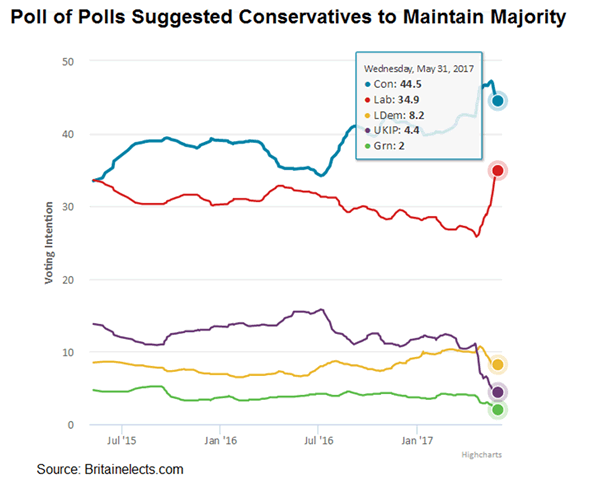British pound volatility has recently increased, not only because the general election is approaching, but also because some opinion polls suggest a hung parliament. The latest YouGov/ Time voting intention survey shows that support for the Conservatives declined markedly to 42% while the Labours gained +3 points to 39%. The 3-point lead by the Conservatives is the narrowest since PM Theresa May has called for the snap election in April. The Liberal Democrats hovered around single-digit, the UKIP remained on 4% and votes for other parties are at 8% (from 7%). Converting percentages to numbers, PM May’s Conservative Party, while remaining the biggest party, might lose as much as 20 seats, down from 330 to 310, in the upcoming general election. If the election outcome results in a hung parliament, it would be the second time since 1974, and the seventh time since the beginning of the 20th century.


A hung parliament occurs when no party has won enough seats in a general election to have a majority in the House of Commons. If it really happens, Theresa May, the incumbent prime minister, would stay in office until it is decided who will attempt to form a new government. As the Cabinet Manual suggested, an incumbent government “is expected to resign if it becomes clear that it is unlikely to be able to command that confidence and there is a clear alternative”.
Back in 2010, the general election resulted in a hung parliament as no party was able to get 326 seats (out of 650) needed for an overall majority. Winning 306 seats, the Conservative Party eventually had to form a coalition government with the Liberal Democratic Party with David Cameron and Nick Clegg being the Prime Minister and the Deputy Minister, respectively.
What if a Hung Parliament Occurs Again?
If YouGov’s polling result materializes, Conservatives would win 310 seats, compared with 330, while Labors would gained +28 seats to 229. LibDem would get 10 seats while the SNP would get 50 seats. In this case, A Coservative-LibDem coalition would still be 6 seats short of majority. Meanwhile, a Labor-SNP coalition, resulting in 307 seats, would also not be workable. Ironically, while the Conservative-SNP coalition would work out in terms of the number of seats, it would unlikely be an appropriate option due to the fundamental conflicts, such as Brexit and Scottish independence, between the two parties.
Poll of Polls Suggests Conservatives Would Gain Overall Majority
Yet, polls of polls compiled by several agencies continue to project that Conservatives would win with overall majority, though it would not be a landslide victory as depicted in mid-April. In our opinion, it would be a disappointment to the market if Conservatives’ seats shrink from 2015 or a Conservatives’ majority is less than 50 seats, compared with expectation of over 100 seats shortly after the snap election was announced. Recall that PM May’s intention to call for the snap election is to cement her mandate in negotiating the Brexit terms with the EU. Obviously, the size of the Conservative majority would affect the flexibility that PM May has in the negotiations

